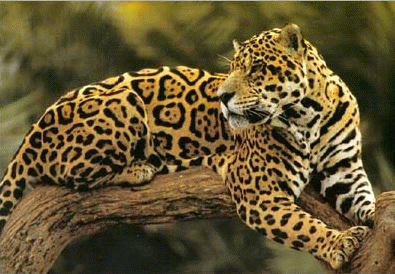By Megan McClellan MS‘14 and Danielle Salisbury MS/MI‘16

Did you have orange juice or coffee with breakfast this morning? If you did, your breakfast probably depended on an insect to pollinate those plants that grew the fruit and beans that you so deliciously enjoyed. But what if you had to hand polinate all of the food you wanted to eat? Eleanor Sterling from the Center for Biodiversity and Conservation at the American Museum of Natural History mentions this point and more in her talk about Climate Change and the Impacts on Biodiversity at Bard Center for Environmental Policy’s National Climate Seminar on Wednesday December 5th.
Dr. Sterling talked about how increasing temperatures have caused species ranges to move toward the north and south poles and upwards in elevation. This causes several problems:
- The species at the poles and the tops of mountains have no place to go.
- Some species are able to move while others are not, disconnecting species that may be beneficial to each other (for example a pollinator and the flower that it pollinates).
- In the past when climate has changed, it changed more slowly and species had more time to move plus there were no human impacted environments to get in their way.
She also discussed problems resulting from increased ocean temperature and increased ocean acidification. Coral reefs could dissolve. Sea turtle nesting sites might be covered by higher tides. Organisms at the base of food webs can be affected, in turn affecting other members of the food web.
Given the threats that biodiversity faces, how should conservation efforts adjust to the pressure of climate change?
- Protected Areas should be made larger to accompany species shifting
- Conservation strategies need to be adapted to the future, not dependent past success
- Humans need to be taken into consideration
- Focus on the systems as a whole, not specifically trends for extinction
Of major interest to Dr. Sterling are bio-cultural feedback loops, one example is where, due to sea level rise, human populations may adapt by no longer fishing on the coast and instead moving in land and starting to farm in areas that have never had farming, which effects MANY eco-systems and needs to be better tracked and predicted.
She is not all doom and gloom though. Quite the contrary…
Dr. Sterling mentioned that some species will benefit from climate change, for example their range may expand. She also talked about interesting research that is currently being done:
- One of Dr. Sterling’s colleagues Dr. Richard Pearson recently wrote a book entitled “Driven to Extinction: The Impact of Climate Change on Biodiversity”
- Together with the Wildlife Conservation Society she and her colleagues are studying habitats that will be appropriate for jaguars in the future, given current climate change predictions. This way they can more likely protect the appropriate habitat for jaguars going forward.
- There is also research looking at coral reefs that exist in areas of natural disturbance, such as on the west coast of the US where El Nino and La Nina, can greatly change the temperature and acidity of the water. This information may help researchers to protect other coral reefs from similar changes due to climate change.
- The American Museum of Natural History has a new exhibit that Eleanor helped create to connect people to where their food comes from, titled “Our Global Kitchen: Food, Nature, Culture.”
It may seem like a lot is being done to combat biodiversity loss in the face of climate change, but it has long been a struggle to motivate everyday people to care about biodiversity loss. Perhaps a major crisis needs to occur to shock people into caring and getting involved, or perhaps a not-so-drastic solution is available. Eleanor advocates education, communication and the exchange of ideas to get people excited, to make better informed decisions, and to come up with solutions. Conserving biodiversity in the face of climate change isn’t going to be an easy task, but it isn’t impossible.
To listen to Dr. Eleanor Sterling on the National Climate Seminar, as well as other speakers, please visit our website at www.bard.edu/cep/ncs.


